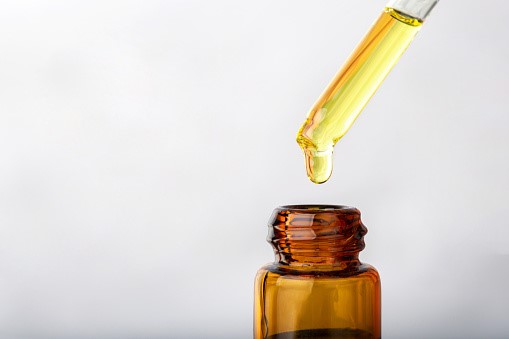CBD, or cannabidiol, has gained significant popularity in recent years. Known for its potential therapeutic benefits – from easing anxiety to managing pain – it's no surprise that many are curious about integrating CBD into their wellness routines.
However, as with any supplement or medicine, using CBD safely is paramount. If you're considering giving CBD a try, here are some tips to ensure you have a safe and beneficial experience.
Start with Research
Before diving into the world of CBD, it's essential to arm yourself with knowledge. While CBD is a natural compound derived from the cannabis plant, it's crucial to understand how it might interact with your body.
First, familiarize yourself with the difference between CBD and THC. While both are cannabinoids, THC is psychoactive (it gives the ‘high' associated with marijuana), while CBD isn't. This distinction is crucial, especially if you aim for therapeutic benefits without the ‘high.'
Also, dive into scientific studies and personal anecdotes about CBD. While research is still in the early stages, understanding current findings can give you a clearer picture of what to expect.
Respect Local Laws and Regulations
CBD laws can differ considerably across regions. While it might be accepted in one place, it could be restricted or even illegal in another. For instance, accessing certain cannabis-derived products in some areas requires a medical marijuana card.
If you're considering products with higher THC levels or other cannabis-derived products, it might be necessary to get your MMJ card online or through local health departments, depending on where you reside.
Always ensure you're abiding by local guidelines. This is especially vital when traveling. Even if you're using CBD for health reasons, being informed is crucial to avoid potential legal issues.
Before purchasing or using CBD or related products, familiarize yourself with the specific rules of your region, and if required, make sure you have the necessary permissions or certifications.
Consult a Healthcare Professional
Before incorporating CBD, or any new supplement, into your routine, always consult with a healthcare professional. This is especially vital if you're on other medications, as CBD can interact with them.
A healthcare professional can guide you on the right dosage and ensure CBD won't adversely interact with current treatments or conditions. Their expertise can be invaluable in navigating the world of CBD safely.
Choose Quality Products
Not all CBD products are created equal. With the boom in CBD's popularity, many brands have emerged, but quality can vary significantly. Here's what to look for:
- Third-party Testing: Ensure the product has been tested by an independent lab. This verifies the CBD content and ensures it doesn't contain harmful levels of contaminants.
- Source of CBD: Opt for products derived from organically grown hemp. This minimizes the risk of pesticide and heavy metal contamination.
- Extraction Method: CO2 extraction is considered the gold standard as it preserves CBD's purity without harmful solvents.
- Full-spectrum vs. Isolate: Decide whether you want a full-spectrum CBD product, which contains other beneficial cannabinoids, or an isolate, which is pure CBD. Each has its unique benefits.
Start Low and Go Slow
When it comes to dosage, the mantra is “start low and go slow.” Everyone's body reacts differently to CBD, so it's wise to begin with a minimal dose and monitor your body's reaction.
Begin with the lowest recommended dose on the product label or as your healthcare professional advises. Note any changes in how you feel – both positive and negative. After a week or so, if you believe you could benefit from a higher dose, gradually increase it.
This method ensures you find the optimal dosage for your needs without overdoing it.
Listen to Your Body
Ultimately, the most crucial gauge is your own body. Be mindful of how you feel before and after taking CBD. Some people report feelings of relaxation, while others notice better sleep or reduced pain. Conversely, some might experience side effects like dry mouth, reduced appetite, or drowsiness.
Maintain a journal to track your dosages and feelings. This will not only help you pinpoint the perfect dose but also help you decide if CBD is beneficial for you.
Understand the Different Forms of CBD
CBD comes in various forms, each tailored to specific needs and preferences. From oils and tinctures to topicals, edibles, and vapes, understanding the differences can help you choose what's right for you.
For instance, tinctures offer fast absorption when placed under the tongue, while edibles like gummies can take longer to kick in but offer a discreet way to consume CBD. Knowing the pros and cons of each can enhance your experience and ensure you're using the form that aligns best with your goals.
Store Your CBD Properly
Like many natural products, CBD has an optimal shelf life. To ensure its longevity and maintain its potency, it's vital to store it correctly.
Keeping your CBD products in a cool, dark place is recommended. Direct sunlight or extreme temperatures can degrade the quality. If you've opted for CBD oil, remember to shake it well before use and always check the product's expiration date.
Be Wary of Overhyped Claims
While CBD offers numerous potential benefits, be cautious of products or brands that make outlandish health claims. No supplement, including CBD, is a magic cure-all.
Stick to reputable brands and be skeptical of those that promise unrealistic or extensive health improvements. Trust in science, personal anecdotes, and your own experience rather than flashy marketing.
Respect Local Laws and Regulations
CBD laws vary significantly across countries and even states. While it might be legal and widely accepted in one region, it could be restricted or illegal in another.
Always check the local regulations, especially when traveling. Even if you're using CBD for therapeutic reasons, it's essential to be informed and avoid potential legal complications.
Conclusion
CBD presents a world of potential benefits, but as with anything we put into our bodies, safety comes first. By arming yourself with knowledge, choosing quality products, consulting professionals, and listening to your body, you can navigate the world of CBD with confidence and care.
Always remember: wellness is a personal journey, and what works for one might not work for another. Stay informed, stay safe, and find what's best for you.
























